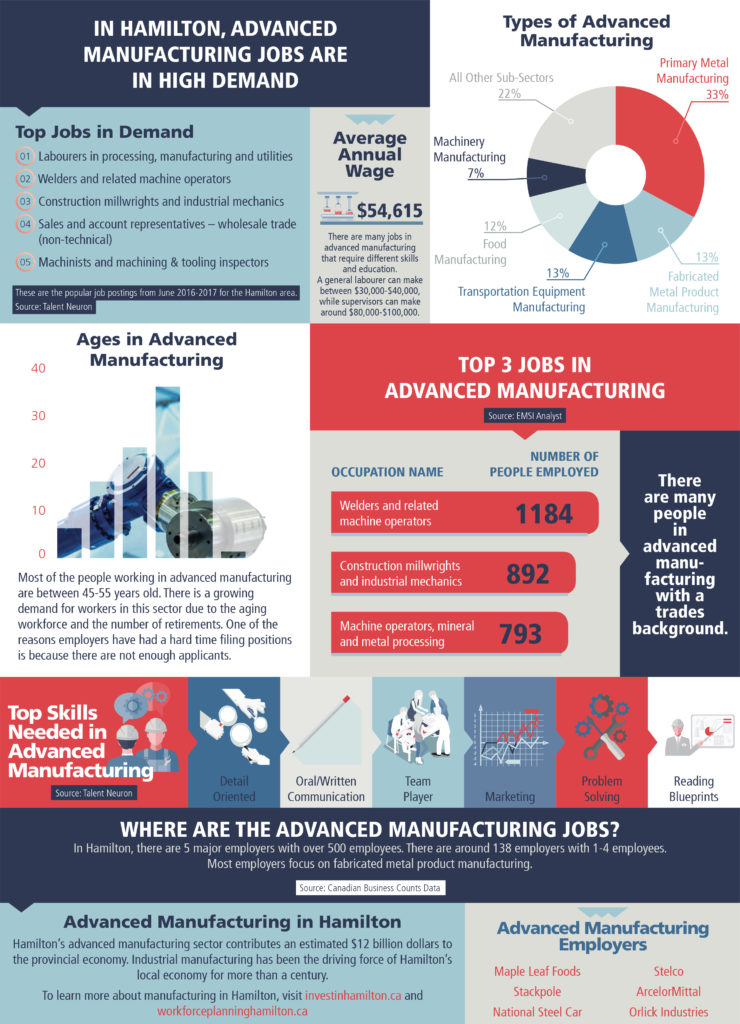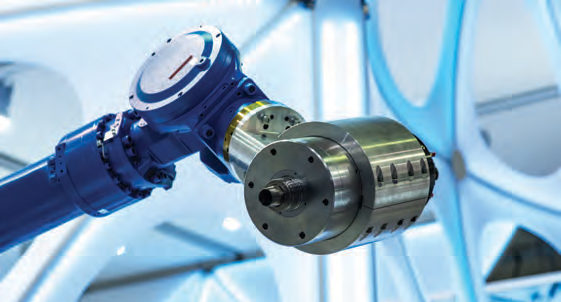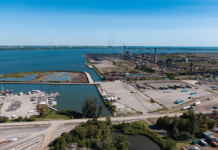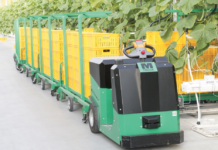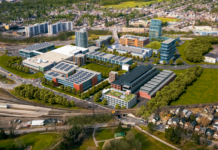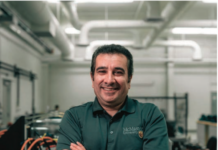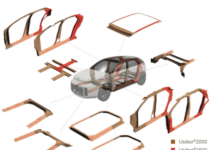Manufacturing built Hamilton but it’s playing a critical role in its present and future, too.
“We have a proud manufacturing heritage that we want to preserve and grow. Many cities and countries no longer make anything at all, but manufacturing is such a critical generator of wealth,” said Glen Norton, Hamilton’s director of economic development.
“Manufacturing is foundational to what Hamilton is,” said Judy Travis, executive director of Workforce Planning Hamilton. “We can’t lose sight that it is the bedrock of our community.”
The city is particularly strong in metal fabrication and an increasingly important sector is food and beverage manufacturing. Important local employers include ArcelorMittal Dofasco, National Steel Car, Nucor, Canada Bread and Maple Leaf Foods.
Hamilton is seeing significant growth in employment in advanced manufacturing, thanks largely due to the expansion of local companies, said Norton. High real estate prices and ever-growing gridlock in the Toronto area are also turning many eyes to Hamilton, including foreign companies that are attracted by Canada’s stable political environment.
Hamilton has tremendous locational advantages and “unparalleled” transportation, says Norton. It is just 45 minutes to both the U.S. border and Toronto, and Hamilton is home to one of the country’s busiest cargo airports with 24-hour operations, two rail lines, and the busiest port on the Canadian side of the Great Lakes.
It also has Mohawk College, the largest trainer of apprentices in Canada.
The recent Mayor’s Blue Ribbon Taskforce focused on how to address a significant skilled trades shortage that is affecting manufacturing employers, said Travis. The challenge is to showcase the huge opportunities in clean, bright advanced manufacturing companies to the next generation of workers.
“Traditional manufacturing did not survive but what is thriving is hightech, highly-automated advanced manufacturing that needs people with advanced skills.”
Read the full Perspective Hamilton 2017 feature here.
